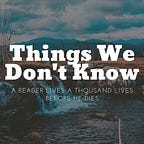5 Things You Need To Know To Be More Productive In This Pandemic
With the number of COVID-19 cases increasing at an exponential rate and many countries in lockdown, most of us are now working from home for the second or third week. While the world battles a never-ending battle against the epidemic, we all have our own everyday difficulties. Many of us are finding it increasingly difficult to combine deadlines with homeschooling, online lectures with domestic chores, and writing papers with pet care as the border between professional and personal environments blurs.
The usual work day seems fairly dreary when there is no real office space to go to, no face-to-face meetings, no coffee breaks with the team, and no exciting conversations about a new project. For many, productivity is at an all-time low. For researchers, the lockdowns mean no lab work, canceled conferences, halted clinical trials, and indefinitely postponed face-to-face interviews. Naturally, you may not be able to complete your current project in a timely manner. But that doesn’t mean you can’t put your time to good use.
Here are some suggestions for being productive even if you are unable to work on your research assignment due to lockdowns:
1. Stay current: Do you remember all those articles you’ve saved but never read? Or those hurriedly read abstracts with the intention of returning to the entire text when you have more time? It’s time to go through your bookmarks or reference manager and conduct some serious reading. Give yourself a break from reading COVID-19 news and set aside some time to stay up with your field’s literature. Staying up to speed with industry news and trends is also a good way to keep track of what’s going on in the scholarly world right now.
2. Participate in virtual events: It can be tough for researchers to include any events into their hectic schedules. However, you can now participate in virtual events such as webinars and workshops hosted by a variety of organizations and colleges. You can attend these events from the convenience of your own home, without having to worry about travel funding or logistical issues like arranging travel plans or leaving your children behind. Consider attending webinars on self-care, mental health, career development, and other topics that will provide you with life skills and provide you with a refreshing change of pace at work, in addition to webinars directly linked to your industry.
3. Resurrect that long-forgotten project: Take out that incomplete project, dig up the long-forgotten data you collected, and put your thinking cap on to see if you can work on it. A fresh viewpoint could genuinely assist you in coming up with new ideas. You might look for recent published research on the issue you’re working on to see whether your data may be used to supplement them. Sometimes all it takes is a simple shift in focus to resurrect an old project.
4. Pick up a new skill: Have you ever been unsure about how to do a literature review? Do you want to improve your project management abilities? Have you ever had a reviewer criticize the way you write your methods section? Now that you’re saving time on traveling, you may put it toward refining these abilities so you’ll be better prepared to move forward with your project once things have returned to normal. Coursera, edX, Udacity, Udemy, and other online education providers have a large selection of courses to pick from. Some of these courses have university affiliations. As a result, these may be certified courses that you can list on your resume. Furthermore, during the pandemic, some online education platforms are giving free or cheap courses. So go ahead and investigate them right now!
5. Concentrate on writing: It’s challenging to find time for focused writing when you’re working in your lab or attending university classes. If you’re a PhD student, now is an excellent time to set aside a few hours each week to write. This could be an excellent opportunity to develop a new proposal or finish your manuscript for individuals who have passed the PhD obstacle. Block out longer periods of time early in the mornings or late at night while the rest of the home is sleeping or watching TV. If you’re the kind that gets easily distracted while writing, there are a slew of bootcamps, productivity tools, and online meetup groups that can help you stay focused and finish your projects.
People are spending more time on social media as a result of social alienation. Take advantage of this networking opportunity. Take advantage of this networking opportunity. Make an effort to improve your social media presence. Everyone is currently talking about COVID-19 and discussing their challenges, so it’s incredibly easy to jump into the conversation and make yourself recognized right now. You can also use social media or email to contact possible collaborators. Because everyone is working from home and misses having others near them, they would be more open to conversing.
Don’t feel obligated to be productive at the end of the day. “It is ok to battle with productivity, regret the events that were cancelled due to social isolation, and feel apprehensive of the uncertainty,” stated Fay Lin, a mental health advocate, in a recent tweet. Take advantage of this opportunity to take a break and refresh your life. Long hours, late nights, failed experiments, missed deadlines, working weekends, and little time for family and friends have probably been a part of your life since you began your job. Why not relax for a while now that you have the time? Take time to recharge and rejuvenate yourself by resting, taking time out for yourself, consciously practicing self-care, enjoying a romantic meal with your husband or play time with the kids, having video conversations with friends, and using this time to recover and rejuvenate yourself.
